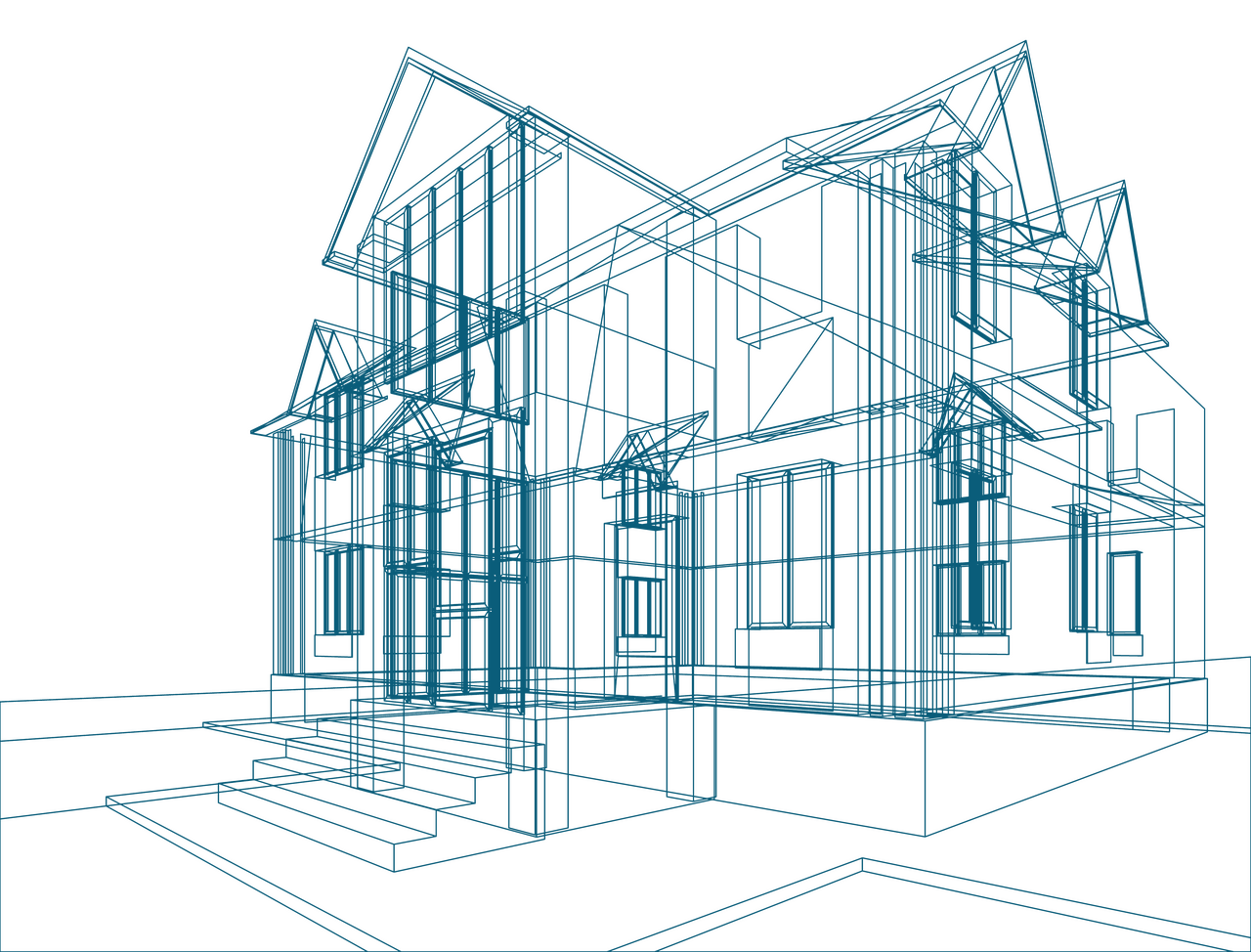


Market report
Home improvement behaviour among consumers
Discover valuable insights into the European home improvement market with the Home Improvement Monitor by USP Marketing Consultancy. Stay updated on industry trends and opportunities.
News I published 06 February 2021 I Dirk Hoogenboom
The future of the home improvement market: Corona impact
With hindsight, this is not that strange. Consumers started to spend more time indoors in their houses due to lockdowns and being forced to work from home. In doing so, two of the three main drivers behind the surge in home improvement jobs were fulfilled: without the need to travel to the office and limited outdoor activities, more time was available to start home improvement projects, and by spending more time indoors, consumers were confronted with much more possible home improvement projects. With this, I mean that by spending more time at home, consumers suddenly saw that the walls could use a new paint layer or that their ‘home office’ could do with some improvements.
The third element in this equation is the budget. The need and time were there, but doing home improvement jobs also requires money. Due to the lockdowns, consumers suddenly had more budget available, as spending on things like restaurants, etc. plummeted. Furthermore, the holiday season(s) were badly compromised, so less money was spent on holidays as well.
From April onward, we have interviewed consumers in 11 European countries about the impact the Corona pandemic had on their home improvement behaviour. A full report is accessible via our website. The link can be found in the comments below. In April, already 19% of European consumers indicated that they were conducting more home improvement jobs than usual due to Corona. Among millennials, this was even 25%. And this effect persisted. In our latest measurement of January 2021, 23% of European consumers indicated that they are conducting more home improvement jobs. Again, this was the highest among millennials (31%). The majority of the jobs done throughout the last couple of months were decorative jobs.
Not all were positive and tough. One major element of the European home improvement market is DIFM, or do-it-for-me. However, many consumers were and are still wary of having professionals working in their homes. In our latest measurement, 50% of European consumers stated that they would rather postpone DIFM jobs for now. At its height, this was 71%. So for professionals working mostly on residential renovation projects, the coronavirus crisis is having a clear negative effect.
Now for the key question: will this surge in home improvement jobs continue in 2021? The short answer is yes. Our indications point towards a continued high level of home improvement jobs done. 27% of European consumers are expecting to spend more money on home improvement jobs in 2021 than they did in 2020. That being said, for the coming 3 months, the share of consumers stating they would be doing more jobs is more or less the same as the group stating that they would do fewer jobs. This means that the number of jobs done will most likely stay at a high level in 2020. However, more money per job is spent, which could be an indication that consumers are picking up larger jobs.
So what could the potential barriers be? The most obvious one is the end of the coronavirus pandemic, either due to mass vaccinations or a more organic decline in the infection rate. This would lead to more spending on holidays, going out to eat, etc., thus decreasing both the time and budget available for home improvement jobs. But this might still take some time.
Also, hard lockdowns during which the DIY stores are forced to close (like in the Netherlands at the moment) will have a negative impact. Even though consumers are ordering home improvement products online at a higher rate than ever before, the closure of DIY stores will have a negative impact for sure.
Now, what will happen in the long term? We expect that, at the moment the coronavirus virus is under control, we will see a sharp drop in home improvement behaviour. The market will reset. After that, the market will recover and continue its growth path as seen in the last couple of years. A positive development is that many millennials in Europe have conducted a home improvement job, liked it, and learned from it. This should bode well for the future of the home improvement market in Europe.

Read more


27 August 2021 I Dirk Hoogenboom
Online media orientation – more online shopping for home improvement products due to corona


16 October 2024 I Dirk Hoogenboom
Home Improvement Brands and Private Labels vs. A-Brands


02 August 2024 I Dirk Hoogenboom
7 Home Improvement Industry Trends To Watch in 2025


13 June 2024 I Dirk Hoogenboom
7 Smart Home Trends To Watch for in 2025

Fresh Insights Await
Our relevant reports
Delve into the newest findings across various market segments, crafted for a cutting-edge overview. Explore our insightful reports, brimming with up-to-date data, trend analyses, and in-depth examinations, all tailored to provide you with a comprehensive understanding of the current market dynamics.
Construction
Home Improvement
Installation
Special reports
Construction
Smart Materials and Buildings Q4 2024
2024 85 pages
Explore the evolving future in construction sector among European architects in Q4 2024. Delve into the factors driving material preferences and the impact on construction aesthetics and sustainability.
2,000 Euro
Construction
Digitalisation and BIM H2 2024
2025 64 pages
Uncover the preferred purchase channels of contractors in H2 2024, and understand how purchasing behaviors evolved. This report provides insights into the factors influencing purchasing decisions among contractors.
6,000 Euro
Construction
Decision making process Q3 2024
2024 87 pages
Unveil the decision-making processes in the construction industry through the lens of European architects. Discover the factors that influence crucial decisions and the interplay among different stakeholders.
2,000 Euro
Construction
Prefab H1 2024
2024 63 pages
Discover the adoption rate and benefits of prefabrication technology among European contractors in H1 2024. Understand the driving forces behind prefab usage and its impact on project efficiency and cost-saving.
6,000 Euro
Construction
Future of construction Q2 2024
2024 82 pages
Explore the evolving future in construction sector among European architects in Q2 2024. Delve into the factors driving material preferences and the impact on construction aesthetics and sustainability.
2,000 Euro
Construction
Sustainability 2024
2024 72 pages
Painter Insight Monitor 2024 will focus on understanding the specific needs, preferences, and challenges faced by painters when it comes to sustainable products.
11,000 Euro
Home Improvement
DIY vs DIFM Q4 2024
2025 76 pages
Explore the prevailing trends between DIY and DIFM in Q4 2024. Understand consumer preferences and the factors influencing their choice between DIY and DIFM.
3,500 Euros
Home Improvement
Branding Q3 2024
2024 74 pages
Discover the power of branding in the home improvement sector. Explore how strong branding influences consumer preferences and purchase decisions.
3,500 Euro
Home Improvement
European Garden Monitor
2023 43 pages
Explore the European Garden Monitor, a comprehensive platform dedicated to garden health monitoring in Europe. Access valuable resources and expert advice today.
12,000 Euro
Home Improvement
Purchase channels Q2 2024
2024 90 pages
The European Home Improvement Monitor offers valuable insights on purchase channels in the European home improvement industry, examining the evolving preferences and behaviors of consumers across traditional retail and emerging online platforms.
3,500 Euro
Home Improvement
Sustainability Q1 2024
2024 81 pages
Delve into sustainability trends in the home improvement sector in Q1 2024. Discover consumer preferences and the shift towards eco-friendly home improvement solutions.
3,500 Euro
Home Improvement
DIY versus DIFM Q4 2021
2024 113 pages
This report is a must-have if you’re in the home improvement industry. It provides a wealth of information on the behaviour of DIY and DIFM consumers, their motivations, and the factors that influence their purchasing decisions.
3,150 Euro
Installation
Training needs Q1 2025
2025 100 pages
This report offers an overview of installers’ habits and preferences concerning their education. Furthermore, the report encompasses the pervasive challenge of workforce shortage and explores the sector’s strategies for resolving this issue.
3,250 Euro
Installation
Media orientation Q4 2024
2025 128 pages
The European Mechanical Installation Monitor report provides a detailed analysis of the plumbing and HVAC industry. This report specifically focuses on Media Orientation in the industry.
2,800 Euro
Installation
Services in the installation sector Q4 2024
2025 102 pages
This report provides a comprehensive view of the installer's requirements for services from manufacturers. Within the report, you will find information on the most needed services in each category: commercial processes, engineering, products & installation, and repair & maintenance. It also examines the services that installers offer to their customers.
3,250 Euro
Installation
Prefab Q3 2024
2024 110 pages
Uncover the adoption of prefabricated products in HVAC installations during Q2 2022. Delve into the benefits and challenges associated with prefabrication in HVAC.
2,800 Euro
Installation
Prefab Q3 2024
2024 119 pages
This report offers a comprehensive view of the installers’ involvement and needs regarding prefabricated electrical installations.
3,250 Euro
Installation
Smart & Connected Products Q2 2024
2024 120 pages
This report provides a comprehensive view of the attitudes of installers toward smart building solutions, specifically among electrical installers and their clients. In the report, you will find insights into the installers' experiences with installing smart products and the willingness of end users to invest in such solutions, as well as their motivations and pain points.
3,250 Euro
Special reports
European Sustainability Report 2024
2025 51 pages
This report provides in-depth insights based on triangulation of key market information and data as well as data from USP Marketing Consultancy’s key monitors that are carried out year in, year out. The focus of this report is on the most important stakeholders within the construction industry, namely architects, contractors, electrical and HVAC installers within The United Kingdom, The Netherlands, Belgium, Germany, Poland, France, Italy, and Spain.
3,950 Euro
Special reports
European Sustainability Report 2024
2024 51 pages
This report provides in-depth insights based on triangulation of key market information and data as well as data from USP Marketing Consultancy’s key monitors that are carried out year in, year out. The focus of this report is on the most important stakeholders within the construction industry, namely architects, contractors, electrical and HVAC installers within The United Kingdom, The Netherlands, Belgium, Germany, Poland, France, Italy, and Spain.
3,950 Euro









